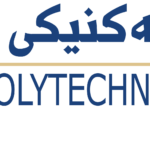- Rand Maurice Aziz
- rand.aziz@epu.edu.iq
- 0751 534 3069
- (Rand Maurice Aziz) M.Sc Thesis Final
-
Polycystic Ovary Syndrome (PCOS) is regarded as a global health problem since its causes and diagnosis have confused many researchers to this day. This study aims to investigate the impact of four important parameters on PCOS in women of Erbil city, including Human Leukocyte Antigen (HLA) represented by the HLA-B*0702 allele, Anti-Follicle Stimulating Hormone (anti-FSH) antibodies, Anti-Luteinizing Hormone (anti-LH) antibodies, and vitamin D3. It is regarded as novel in this field. For this purpose, one hundred blood samples, including EDTA for molecular characterization and serum samples for immunological analysis were collected from (60 PCOS patients and 40 healthy controls) who attended the Maternity Teaching Hospital and some private clinics and hospitals in Erbil City between October 2021 and January 2022. After DNA extraction, all of the extracted DNA samples were genotyped using a PCR-based approach with specific sequence primers. Anti-FSH and anti-LH antibodies serum levels were assessed by Enzyme-Linked Immunosorbent Assays (ELISA), whereas vitamin D3 assessment was done using an Electrochemiluminescence (ECL) technology on a Cobas e411 immunoassay analyzer.
The outcomes of the study, with an odds ratio (OR) of 2.167 at a 95% confidence interval (CI) of 0.8167 to 6.330, signifies a higher risk and suggesting that the syndrome is more common with the HLA-B*0702 allele which is harmful in this case. The serum levels of anti-FSH and anti-LH antibodies in primary infertile PCOS patients were significantly higher than in the control group and secondary infertile PCOS patients. A significant positive linear relationship was also discovered between these antibodies (P-value < 0.0001). Furthermore, anti-FSH antibodies showed a significant positive correlation with FSH, just as anti-LH antibodies did with LH (P-value < 0.01). However, both antibodies demonstrated non-significant positive correlations with the LH/FSH ratio and non-significant negative relationships with vitamin D3 (P-value ≥ 0.05). Hypovitaminosis D3 was observed in most PCOS patients and healthy controls with a significant difference (P-value < 0.01). According to the findings, the HLA-B*0702 allele is linked to PCOS susceptibility and could be employed as an immunogenetic marker. The results also supported the idea that antibodies against follicle-stimulating hormone and luteinizing hormone are naturally found antibodies in PCOS patients rather than signs of autoimmune disease. Women with PCOS are additionally more inclined to develop vitamin D3 deficiency.
- Erbil Technical Health College
- Medical Laboratory Technology
- Immunology


